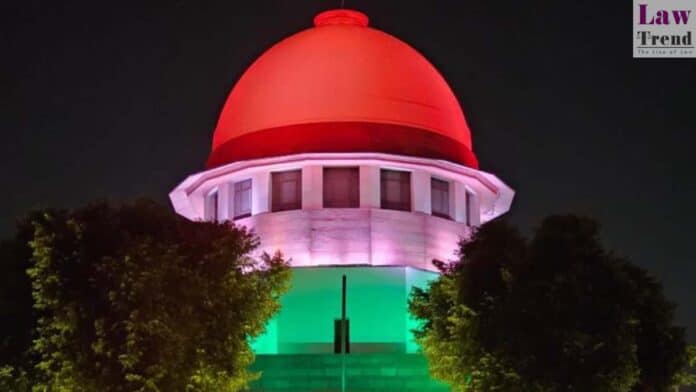The Supreme Court on Wednesday asked mineral-rich states like Jharkhand and Odisha whether Parliament can prescribe any limitation on the taxes they impose on mineral bearing land.
A nine-judge constitution bench headed by Chief Justice DY Chandrachud, which is considering whether the royalty collected on mining leases can be considered as tax, as held by a seven-judge bench in 1989, acknowledged that states do have the power under the Constitution to impose taxes on such land.
However, the bench asked them whether this power precludes the central government from putting any limitations or restraint as imposition of tax also has some impact on mineral development, an entry which falls under the Union List in the 7th schedule of the Constitution.

“If you are choosing to impose a tax on mineral bearing land, would it not be open to the Parliament to exercise its power under list 1 (of the Constitution) to impose restraint or limitation even when you are exercising powers under Entry 49 of List 2,” said the bench, also comprising Justices Hrishikesh Roy, Abhay S Oka, BV Nagarathna, JB Pardiwala, Manoj Misra, Ujjal Bhuyan, Satish Chandra Sharma and Augustine George Masih.
Entry 49 of List 2 of the Constitution deals with taxes on land and buildings by the state.
Senior advocate Rakesh Dwivedi, appearing for Jharkhand and Odisha, said even though the expression “subject to limitation” is not there in Entry 49, some limitations can still be imposed.
“Entry 49 of List 2 is the exclusive entry of taxing power with respect to land and building. There is no other entry in any of the lists (under the Constitution) which operate in the same field of tax on land and building as a unit,” he said.
Dwivedi submitted that mining land would not be outside the fold of Entry 49 of List 2 as the framers of the Constitution contemplated that the state legislature should have legislative competence to impose tax on land and buildings of all kinds.
“As long as the measure of tax, which have been adopted, has close and proximate nexus with the land, keeping in mind its use and non-use, the levy of tax by the states would be valid and competent,” the senior lawyer submitted.
He said in case of Jharkhand, the rate of tax is not more than Rs 1.50 per acre and it applies across the board to all kinds of land, and there can be no dispute that the measure of tax is directly or indirectly connected with the land.
It is not a case where mineral bearing land has been unnecessarily targeted, he said.
Dwivedi added in some cases involving Odisha and other states, which have enacted legislations post the 2004 verdict of the five-judge bench, the annual value of land is determined on the basis of value of minerals dispatched.
“There, the tax is entirely on the land. And the measure has also proximate nexus with the land from which the minerals have been extracted,” he said.
Senior advocate S Niranjan Reddy argued for Andhra Pradesh, while senior advocate Vijay Hansaria made submissions on behalf of Shaktinagar Special Area Development Authority of Uttar Pradesh.
The hearing remained inconclusive and would continue on Thursday.
Also Read
On Tuesday, the top court commenced hearing on the vexed issue of whether the royalty payable on minerals extracted, as provided for under the Mines and Minerals (Development and Regulation) Act, 1957, is in the nature of tax.
The issue arose after the 1989 verdict in the case of India Cements Limited versus State of Tamil Nadu by a seven-judge bench of the apex court, which held that royalty was a tax.
However, a five-judge bench of the apex court held in 2004 in the State of West Bengal versus Kesoram Industries Limited case that there was a typographical error in the 1989 verdict and that royalty was not a tax. The dispute was then referred to a larger nine-judge bench.
The top court is hearing a batch of 86 appeals filed by mining companies, public sector undertakings (PSUs) and state governments arising from conflicting verdicts passed by different high courts on the issue.







